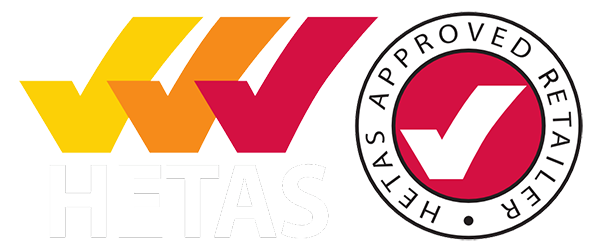Are you wondering whether HETAS approval is a necessity when it comes to selling your house with a wood-burning stove? Understanding the importance of HETAS certification cannot be overstated, as it significantly bears on your home’s safety, meets compliance standards, and could potentially affect the marketability of your property.

Why Is a HETAS Certificate Important in a Property Sale?
Do you need a HETAS certificate to sell your house? In short, yes, if you’re selling a property with a wood-burning stove or biomass boiler. Let’s delve into why it’s important.
What does HETAS certification signify for home safety and compliance?
HETAS certification demonstrates that a heating appliance installation meets the necessary safety standards and complies with the latest building regulations. It signifies that the installation has been carried out by a competent person and has been properly checked and approved.
A HETAS certificate is more than just a piece of paper; it’s a reassurance for homeowners and prospective buyers that the installation has been done professionally and safely. Additionally, it is often required by insurance companies to validate policies covering fire-related risks.
How can HETAS approval enhance property marketability?
- Boosted Confidence: Buyers are likely to feel more at ease knowing that the property’s heating system adheres to rigorous standards, promising them safety and efficiency.
- Reduced Hassle: With a valid HETAS certificate, the new owners won’t need to worry about legalities or additional inspections post-purchase, simplifying their move-in experience.
- Financial Advantage: Some buyers may view a HETAS-approved installation as a valuable addition, potentially boosting the desirability and market value of your property.
For more details on HETAS certification and its impact on your house sale, consider reading through the comprehensive guide available here. This resource can provide further insight into how such a certification might affect your property’s appeal in the Scottish market and what steps to take if your heating system isn’t yet certified.
In the competitive property market, having a HETAS certificate can be a clear advantage. It’s a mark of quality and compliance that not only facilitates a smoother sale process but also provides peace of mind for all parties involved.
What Are the Legal Requirements for Stove Installations When Selling?
When you’re planning to sell your house, do you know if your wood-burning stove meets legal compliance in Scotland? Are you aware of the consequences if you’re selling with a stove that doesn’t meet these standards?
In Scotland, legal compliance for wood-burning stoves when selling your property involves adhering to specific building regulations for stove installations. These regulations ensure that installations are safe and efficient, reducing the risk of fire and carbon monoxide poisoning. It’s critical to ensure that your stove has been installed by a professional who complies with these regulations.
Legal Compliance for Wood-Burning Stoves:
- Building Regulations: Must be met, with stoves installed safely by a competent person.
- Certification: A HETAS certificate is often required, proving compliance with legal standards.
- Documentation: Proper documentation should be available for potential buyers and solicitors. Just as having a HETAS certificate is crucial, so is ensuring you have all necessary property documents. If you find yourself missing key documents, you might want to explore how to sell your house without deeds. This guide can help you navigate the complexities of selling a property without complete paperwork, ensuring a smoother transaction process.
Repercussions for Selling with a Non-Compliant Stove:
- Potential Sale Delays: Undocumented or non-compliant installations can cause delays in the conveyancing process.
- Legal Implications: Selling a house with a non-compliant stove can lead to legal issues, including liability for any incidents caused by the non-compliant installation.
- Value Impact: The property’s market value and desirability may be negatively affected.
Addressing the legal requirements and ensuring your stove is compliant is vital before listing your property for sale. It reassures prospective buyers, facilitates a smoother sale process, and limits your liability, preventing costly disputes post-sale. For any installation, especially those not overseen by HETAS-registered engineers, you should consider having it inspected and obtaining certification that verifies the installation meets the necessary safety and legal standards.
Understanding the process, obtaining the necessary documentation, and ensuring your property is compliant will help you navigate through sale preparations with confidence.

How to Obtain a HETAS Certificate for Your Property?
Securing a HETAS certificate is a key step if you’re considering selling your house with a wood-burning stove or any other solid fuel heating system. The HETAS certification indicates that your installation meets the latest safety and efficiency standards, which can significantly boost your property’s appeal. But how do you get a HETAS certificate? Below is a step-by-step guide to help you through the process:
Step 1: Evaluate Your Needs
- Determine whether your stove and flue installations require certification or if any updates are needed.
Step 2: Identify a HETAS Registered Engineer
- Find a local, certified installer for your stove by visiting the official HETAS website or requesting recommendations from your network.
Step 3: Arrange an Assessment
- Schedule an inspection with the registered engineer to assess and certify your installation.
Step 4: Certification On Approval
- Once the installation is verified and meets HETAS standards, the engineer will issue a certificate of compliance.
Step 5: Update Your Property Listing
- Ensure your hetas certification and property listings information reflects the newly acquired certificate.
For a comprehensive understanding of what documents are necessary when selling your property, including the HETAS certificate, you can find detailed information at Get Agent.
Remember, hiring a HETAS registered engineer is crucial for both compliance and safety. These professionals are trained to adhere to building regulations for stove installations and can provide you with the assurance that your heating system will not hinder the sale of your property. When done properly, obtaining HETAS certification not only complies with legal requirements but also communicates to potential buyers that your home is well-maintained, safe, and ready to move into.
Will Lack of HETAS Certification Affect Your Property Sale?
 Are you wondering if your uncertified stove could throw a wrench in your plans to sell your house? Here’s the answer: Do uncertified stoves affect house sales? Yes, they can. Selling your house without a HETAS certificate can lead to consequences and potential sale obstacles that you need to be aware of. In much the same way that uncertainties can arise during property settlements in personal matters, such as who gets the house in a divorce with kids, the lack of certification can complicate the sale process. Buyers may be hesitant or demand lower prices, similar to how assets are scrutinized and divided in a divorce scenario involving children. Let’s delve into what these could entail and understand buyer concerns regarding uncertified stoves.
Are you wondering if your uncertified stove could throw a wrench in your plans to sell your house? Here’s the answer: Do uncertified stoves affect house sales? Yes, they can. Selling your house without a HETAS certificate can lead to consequences and potential sale obstacles that you need to be aware of. In much the same way that uncertainties can arise during property settlements in personal matters, such as who gets the house in a divorce with kids, the lack of certification can complicate the sale process. Buyers may be hesitant or demand lower prices, similar to how assets are scrutinized and divided in a divorce scenario involving children. Let’s delve into what these could entail and understand buyer concerns regarding uncertified stoves.
When it comes to heating systems, especially wood-burning stoves, HETAS (Heating Equipment Testing and Approval Scheme) certification is a stamp of safety and compliance. This is important as it reassures potential buyers that the installation meets the necessary legal and safety standards. Without this certification, you may find yourself facing an uphill battle during sales negotiations. Why? Because buyers are becoming increasingly cautious, and the lack of proper certification might raise red flags about the safety and legality of the stove installation.
It’s not just about ticking a box for compliance; it’s about providing assurance to those interested in your property. By not having a HETAS certificate, you run the risk of:
- Delaying the sale process, as buyers might request that the stove be certified or removed before agreeing to the purchase.
- Decreasing the value of your offer; buyers may negotiate for a lower price, factoring in the cost and hassle of obtaining certification themselves.
- Losing potential buyers who are not willing to take on the responsibility of an uncertified appliance.
To avoid these potential sale obstacles, you might want to consider obtaining the necessary approval before listing your property. By doing so, you eliminate a possible barrier to sale and potentially increase your house’s appeal to potential buyers. For more information on what certificates you may need when selling your house, including the importance of HETAS certification, visit Springbok Properties.
In summary, while it’s not legally mandatory to have a HETAS certificate to sell your house, the advantages of having one clearly outweigh the inconvenience of obtaining it. Ensuring your wood-burning stove is HETAS certified before you put your home on the market can save you time, enhance negotiations, and offer peace of mind to your prospective buyers.
How Does HETAS Certification Contribute to a Swift Property Sale?
When you’re looking to secure quick property sales, every detail matters – including whether or not your home’s heating systems meet the necessary standards. This is where HETAS certification can play a vital role.
Can HETAS certification simplify and speed up the sale process?
Yes, HETAS certification can indeed simplify and speed up the sale process. Having a HETAS certificate for your wood-burning stove or biomass heating system reassures potential buyers that the installation is safe to use and complies with the relevant building regulations. This can significantly reduce delays in the conveyancing process, as it’s one less thing for the buyer to worry about or negotiate over.
HETAS (Heating Equipment Testing and Approval Scheme) is the official body recognised by the UK government to approve solid fuel heating appliances. It’s an indication that the appliance has been installed correctly and is safe to use, which is crucial for any homeowner.
The role of HETAS compliance in buyer decision-making
From the buyer’s perspective, knowing that your property has a HETAS-approved heating system can indeed influence their decision-making. It’s a clear indicator of the home being well-maintained and that future maintenance and safety concerns have been considered. This is especially important for those who may not be familiar with the upkeep of such appliances.
Furthermore, the presence of a HETAS certificate indicates to the buyer that they won’t have to incur additional costs or effort to secure this certification themselves post-purchase. They are spared the hassle of paperwork, finding a certified installer, and potentially amending non-compliant installations, which can be expensive and time-consuming.
By ensuring your property’s heating system is HETAS certified, you are not only readying a HETAS stove for property sale but also demonstrating to prospective buyers that you have been proactive about your home’s maintenance. This proactive approach speaks volumes about your home’s overall care and can place your property high on the buyer’s list, paving the way for a quicker sale.
What Should Sellers Know About Heating Systems and HETAS Before Listing?
Are you preparing to sell your home with a wood burner? Understanding the role of HETAS and the necessary safety certificates for selling houses is crucial.

Necessary Inspections and Certificates for Sellers with Wood-Burning Stoves
Firstly, do you need HETAS approval to sell? Yes, you should obtain a HETAS certificate to ensure a smooth sale process.
HETAS (Heating Equipment Testing and Approval Scheme) is an organisation that approves heating appliances, fuels, and services. Here’s why it matters for homeowners:
- HETAS Certification Serves as Proof of Safe Installation: It confirms that your wood-burning stove meets the required safety standards.
- Compliance with Building Regulations: A HETAS certificate indicates that your stove installation complies with building regulations.
- Peace of Mind for Buyers: It provides reassurance to potential buyers that the stove is safe to use.
If your wood burner was installed by a HETAS registered installer, you’d already have the necessary certification. However, if it wasn’t, you’ll need an inspection from a registered installer or a Building Control sign-off to receive certification.
Disclosing Heating System Details and Compliance in Property Listings
When listing your property, full disclosure of your heating system’s details and compliance status is essential. Here’s what you should do:
- List Any Certifications: Clearly state if your wood burner is HETAS certified.
- Provide Additional Information: Include any warranties or user manuals that come with the wood burner.
- Be Honest About Non-Compliance: If you lack HETAS approval, be upfront about it. This can be addressed during the sale negotiations.
Remember, selling a home with a wood burner without the correct certification can lead to issues in the conveyancing process and potentially reduce the sale price or deter buyers. Therefore, securing HETAS certification is not only a matter of legal compliance but also a smart selling strategy.
Ensure your wood burner is an attractive feature rather than a point of contention. Visit GetAgent’s comprehensive guide on HETAS certification for more details on preparing your home and heating system for a swift sale.
Do I Need HETAS Approval to Sell?
Are you questioning whether HETAS certification is necessary when you’re selling your house? The short answer is no, HETAS approval isn’t legally required to sell your house. However, let’s delve into why obtaining a HETAS certificate might still be in your best interest.
HETAS Certification Requirements When Selling a House
- Home Safety and Compliance: A HETAS certificate is a homeowner’s assurance that their wood-burning or multi-fuel heating system complies with relevant safety standards.
- Impact on Sales: Homes with HETAS certified installations often have an advantage in the housing market, as they provide potential buyers with peace of mind.
First, consider what a HETAS certificate signifies—it is a clear indication that any solid fuel appliances in your home have been installed safely and comply with the latest building regulations. This isn’t just a formality; it’s about safeguarding the property and its occupants against potential hazards such as fire or carbon monoxide poisoning.
Importance of HETAS for Homeowners
- Reassurances for Buyers: When selling, having HETAS approved installations can reassure buyers of the safety and legality of the heating systems in place.
- Enhancing Marketability: For some buyers, a HETAS certified installation could be a deal-maker, setting your property apart from others on the market.
When you choose to get HETAS approval, you are not just ensuring safety; you are also enhancing your property’s marketability. A certification can serve as a significant selling point, indicating to prospective buyers that they won’t face the hassle and expense of ensuring the installation meets legal standards after purchase. It’s about offering them the comfort of security and compliance.
Having HETAS certified installations can make your home more appealing to buyers who value safety and compliance. It can also prevent potential legal issues during the property transaction, which can save you time and avoid complications in the selling process. While not mandatory, it’s clear that HETAS certification can be a valuable asset when selling your property.
Conclusion
Understanding HETAS certification and its significance for home safety and compliance is crucial when selling your property. It’s not just about meeting legal requirements for stove installations; it’s also about enhancing your property’s marketability. Through the well-informed steps to acquire a HETAS certificate and the insight into how it may affect your property sale, this post has aimed to equip you with the knowledge needed to navigate these waters confidently.
A HETAS-approved installation can indeed streamline the sale process, soothing potential buyer concerns and demonstrating your commitment to safety and legality. Remember, meeting these important criteria isn’t only about ticking boxes; it’s about valuing the peace of mind that comes with a compliant, secure home. As you prepare your property for the Scottish market, consider the role of HETAS certification not just as a necessity, but as a valuable asset in your selling toolkit.

FAQ
FAQ: Importance of HETAS Certification in Property Sales
Do I need a HETAS certificate to sell my house?
- While it’s not a legal requirement, a HETAS certificate is highly recommended when selling a property with a wood-burning stove or biomass boiler to assure buyers of the installation’s safety and compliance.
Why is obtaining a HETAS certificate advisable before selling my home?
- Obtaining a HETAS certificate enhances property marketability, provides reassurance to potential buyers, and simplifies the sales process by ensuring your heating installation adheres to safety and building regulations.
What are the consequences of selling a property without HETAS certification?
- Selling without a HETAS certificate can lead to potential sale delays, negotiated price reductions, and the possibility of losing interested buyers due to concerns over the safety and legality of the heating system.
How can I obtain a HETAS certificate for my property?
- To obtain a HETAS certificate, hire a HETAS-registered engineer to inspect your installation, and upon approval, they will issue a certificate. This ensures compliance and can make your property more attractive to buyers.
What should I disclose about my heating system when listing my property for sale?
- When listing, disclose whether your heating system is HETAS certified, provide any relevant warranties and manuals, and if you’re lacking certification, be upfront to address this during the sales negotiation.
Robbie Jamieson
Robbie’s passion for real estate extends beyond the conventional, bringing fresh and dynamic ideas to the table. His expertise in leveraging online platforms ensures that your home receives the attention it deserves in today’s competitive market.
Related Posts
Must You Pay Tax on a Parent’s House Inheritance
August 28, 2024
Wondering if you’ll pay inheritance tax on a parent’s house in Scotland? Get clarity on IHT laws and calculate liabilities efficiently.
Can Owning a House Affect Your Benefit Claims
August 26, 2024
Wondering if owning a house impacts benefits? Our guide explains home ownership’s effect on your eligibility in Scotland.
What Does Negative Equity Mean for Your Home
August 23, 2024
Struggling with negative equity meaning? Our guide clarifies how it occurs and ways to tackle it in Scotland’s unique property market.
Who Pays Forced House Sale Fees
August 22, 2024
Who pays legal fees in forced house sale situations? Uncover costs & solicitor fees for quick resolutions in Scotland.
Missed a Mortgage Payment? Discover the Risks
August 19, 2024
Missed a mortgage payment and unsure what’s next? Find out immediate consequences and steps for resolution in our guide.
Do You Pay CGT on Gifted Property
August 13, 2024
Wondering if you have to pay capital gains tax on gifted property in Scotland? Get expert insights and rules explained.
Who Gets the House in a Divorce with Kids
August 12, 2024
Navigating who gets the house in a divorce with children? Read to understand Scottish law and best interests in property settlements.
How to Bypass Restrictive Covenants and Save Your Sale
August 7, 2024
Struggling with how to get around restrictive covenants? Our guide offers legal solutions and tips for homeowners in Scotland.
What Paperwork Do You Need to Sell Your House
July 30, 2024
Worried about what paperwork you need to sell your house? Get all the details for a smooth Scottish property sale on our blog.
Can You Sell Your House to Your Son for £1
July 26, 2024
Thinking of selling your house to your son for £1? Learn about legalities and tax in Scotland with our guide.












